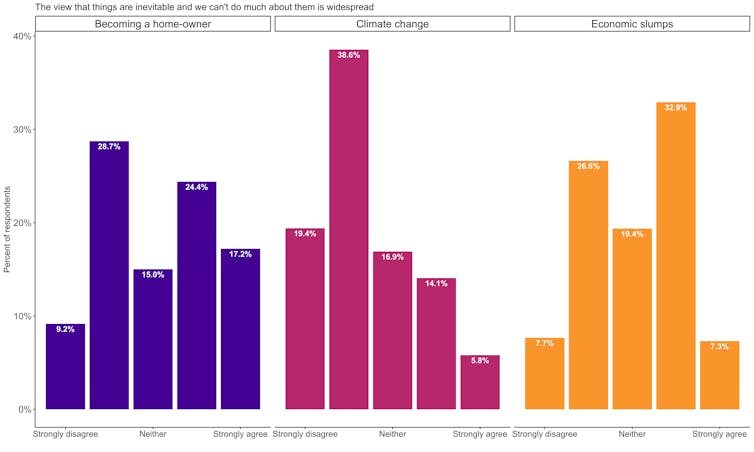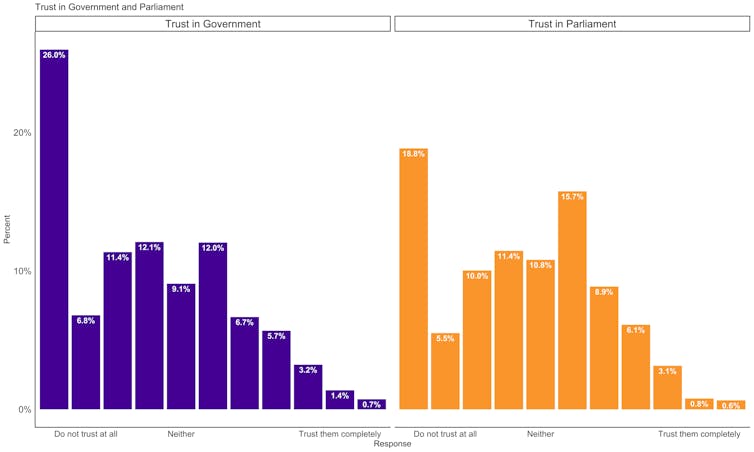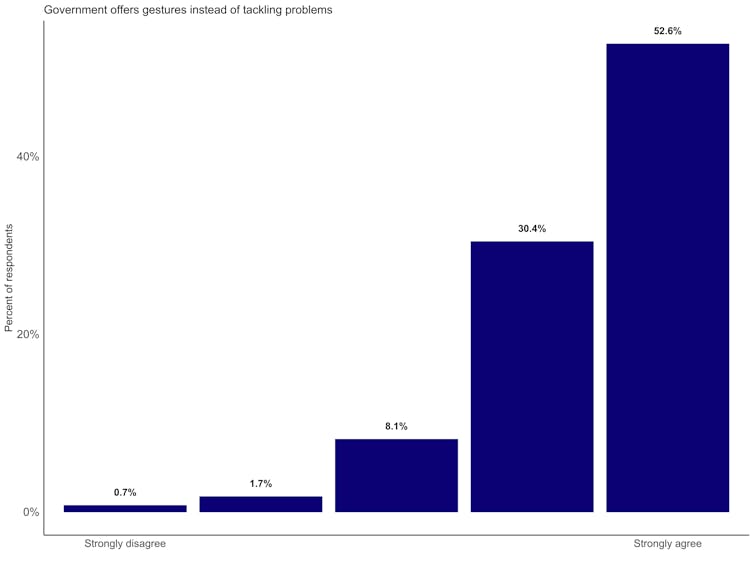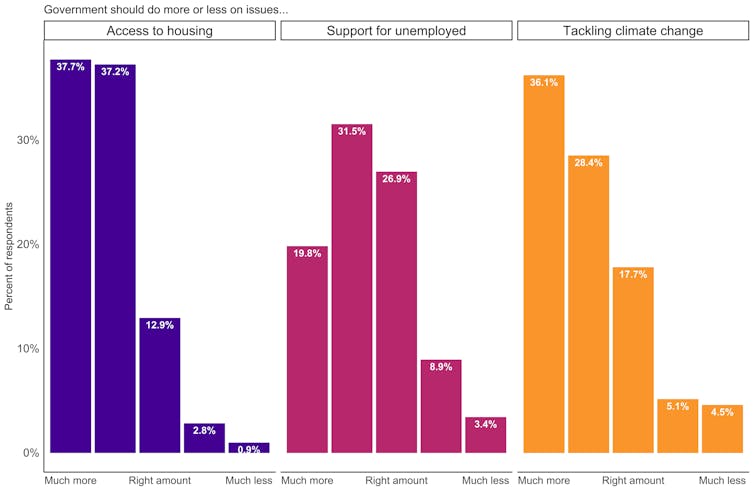A defining theme of the general election 2024 campaign is that while Labour enjoys a monumental lead in the polls, there is a lack of enthusiasm about having a Labour government, or belief in its potential to change very much.
Keir Starmer, the Labour leader, blames the Conservatives for this and has suggested that the underlying issue is that “over the past 14 years, the government has beaten the hope out of people”. The implication here is that people have come to think that the government can’t, or won’t, do very much to improve people’s lot in life.
In a recent survey, details of which are published here for the first time, we have found evidence that people do indeed lack hope that the government can tackle society’s major challenges – but also that they think governments should do more to meet these challenges. We surveyed over 2,000 people online across the UK in April 2024 using a sample representative of the general public provided by YouGov.
This gap between what people think governments can do and what they should do will be a challenge for a Labour (or any other) government that comes to power on July 4.
There is a high level of fatalism about the government’s capacity to meet society’s biggest challenges – but also things that are perfectly within the scope of a government to influence. In fact, we asked about fatalism over economic slumps and home ownership – two undoubtedly tricky areas, but areas governments can directly influence – as well as climate change, and found that people were even more fatalistic about the former two than the existential threat and wicked policy problem that is climate change.
It seems that people have less hope of the government changing the economy and housing – the bread and butter of politics – than they do the even more complex problem of climate change mitigation.
Given the enormous global effort required to address climate change, and the likely change in people’s lives it would entail, it is surprising that far more manageable policy challenges entail greater public fatalism.

‘Empty gestures’
This sense of fatalism is matched by intense disbelief in the capacity of politics. Politicians are not generally trusted, and in our survey we found that 52% of people strongly agreed that the government offers “empty gestures” instead of tackling important problems.
Another 30% agreed and only 2.4% of people disagreed or strongly disagreed with this view. Meanwhile, a full 26% of people do not trust the government at all (and 19% feel the same about parliament, generally).


Despite this overwhelming sense that the government can’t do anything about these problems, our survey suggests that the public still wants it to try harder.
There was strong support for more action on securing access to housing, supporting the unemployed and tackling climate change. A full 70% felt the government should do more on access to housing, with just 13% believing it is doing about the right amount. Most also felt the government should do more to support the unemployed (51%) and tackle climate change (64%).

Can Labour deliver?
Is all this about to cause spiralling disappointment and the shortest honeymoon ever experienced by any incoming government?
Years of research indicates that the three elements of delivering on policy promises are a helpful context, clear leadership and the capacity to leverage resources.
The political threats facing the world at the moment and the sluggish economic growth being experienced in the UK mean the next government will not be starting in a benign context. The World Bank estimates that the largest economies will still be growing more slowly than in the decade before the pandemic.
Meanwhile, Labour’s capacity for leadership and delivery is still to be tested, but may be helped by the experience of former civil servant Sue Gray who is tasked with making change happen. The language of Labour’s manifesto recognises the need to change the way government works. Its proposed solution is a mission-driven government that is focused on clear and shared goals.
A doubtful observer might point to a recent history of hyper-innovation in the British government that has failed to deliver much improvement. But Labour may also benefit from the devolved systems of Scotland, Wales and Northern Ireland being willing to cooperate on shared issues of concern, and in England 11 of the 12 metro or combined authority mayors are from the Labour party.
Breaking a cycle of failed innovation and dysfunctional governance may be enough to push back on the public’s fatalism. But fatalism may equally be unrelated to what government does and can do – it may be related to social and ideological divisions in society (and indeed we find differences between people in their perceptions) as well as, perhaps, a more general view that life is out of control. A better understanding of the public mood may be as central a task as the challenge of improving governance and delivery.

